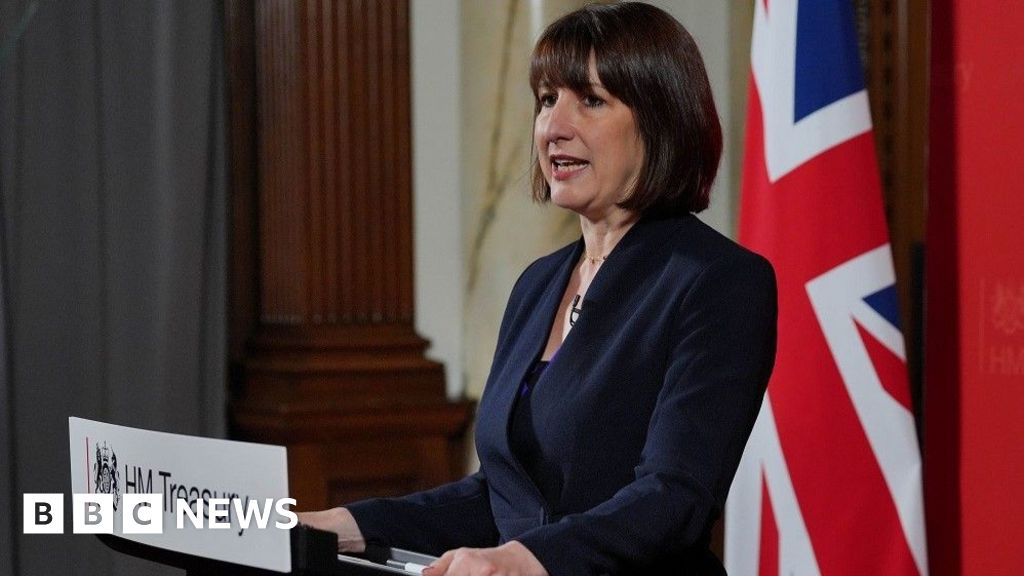- Author, Faisal Islam & Charlotte Edwards
- Role, BBC News
-
Rachel Reeves has announced that she will bring back compulsory housebuilding targets as part of a wide ranging plan to reboot the UK economy.
In her first speech as chancellor, she also said she would overhaul planning restrictions and end the effective ban on onshore wind farms in England in order to speed up national infrastructure projects.
Ms Reeves said the government would make the “tough” and “hard choices” to fix the economy, adding that the UK had lagged behind other developed nations for years.
“The question is not whether we want growth, but how strong is our resolve? How prepared are we to make the hard choices and face down the vested interests?” she said.
“The story of the last 14 years has been a refusal to confront the tough and the responsible decisions that are demanded. This government will be different and there is no time to waste.”
She and her team worked through the weekend on the speech to business leaders and investors who have held back on investment in Britain in recent years amid the political chaos of the post-Brexit years and the Liz Truss mini-budget.
It is hoped her plans will unleash tens of billions of pounds of investment in green industry and housebuilding.
Speaking to business leaders at the Treasury, Ms Reeves said planning decisions for major infrastructure projects in Britain will be made nationally rather than locally in an attempt to stop important projects becoming tied up in years of red tape.
The new government also plans to recruit additional planning officers to speed up the planning process and that mandatory house-building targets will be restored.
However, Ms Reeves said this was not a “green light” to any kind of housing development, and that the right “mix” of afforable housing and homes for social rent would be built.
“The deputy prime minister will take an interventionist approach to make sure that we have got the housing mix that our country needs, that our people need,” she said.
As part of an overhaul of planning rules, she said Labour would review green belt boundaries to prioritise brownfield and so-called “grey belt” land, which are poor-quality areas in the green belt.
The government will also ask the transport and energy secretaries to prioritise decisions on “infrastructure projects that have been sitting unresolved for far too long”.
Ms Reeves said the government would set new policy intentions for critical infrastructure in due course.
“I know that there will be opposition to this,” Ms Reeves said.
“I’m not naive to that, and we must acknowledge that trade-offs always exist. Any development may have environmental consequences, place pressure on services and rouse voices of local opposition, but we will not succumb to a status quo which responds to the existence of trade-offs by always saying no.”
During the election campaign, Labour focused largely on tackling housing supply, with a promise to build 1.5 million homes in England over the next parliament.
Proponents of compulsory housebuilding targets say they are necessary to make sure councils build the number of houses required.
Opponents, though, say the mandatory approach has been tried unsuccessfully for decades and it risks forcing development on greenfield sites against the wishes of locals.
Roger Mortlock, chief executive of the CPRE, the countryside charity, said building on the green belt was not the answer.
“The idea that the green belt hasn’t been touched [under] the last government is not true – around six to 10,000 homes a year have been built on greenfield sites in the greenbelt since 2009,” he said.
“Very often what they’re creating are car-dependent communities, pock-marking the green belt, not delivering anything for the people living there.”
‘Open for business’
Ms Reeves and new Prime Minister Kier Starmer have pledged to boost growth in the economy to help fund increased spending on public services, but they have also promised not to raise income tax, national insurance or VAT.
In her speech, Ms Reeves said she had ordered an assessment of the state of the country’s public finances and would present the results before parliament’s summer break, before holding a full Budget later in the year.
She also made a pitch to investors who might have avoided the UK in recent years by promising stability.
“After 14 years, Britain has a stable government – a government that respects business, wants to partner with business and is open for business,” she said.
“In an uncertain world, Britain is a place to do business.”
#Chancellor #Rachel #Reeves #bring #housebuilding #targets,
#Chancellor #Rachel #Reeves #bring #housebuilding #targets
